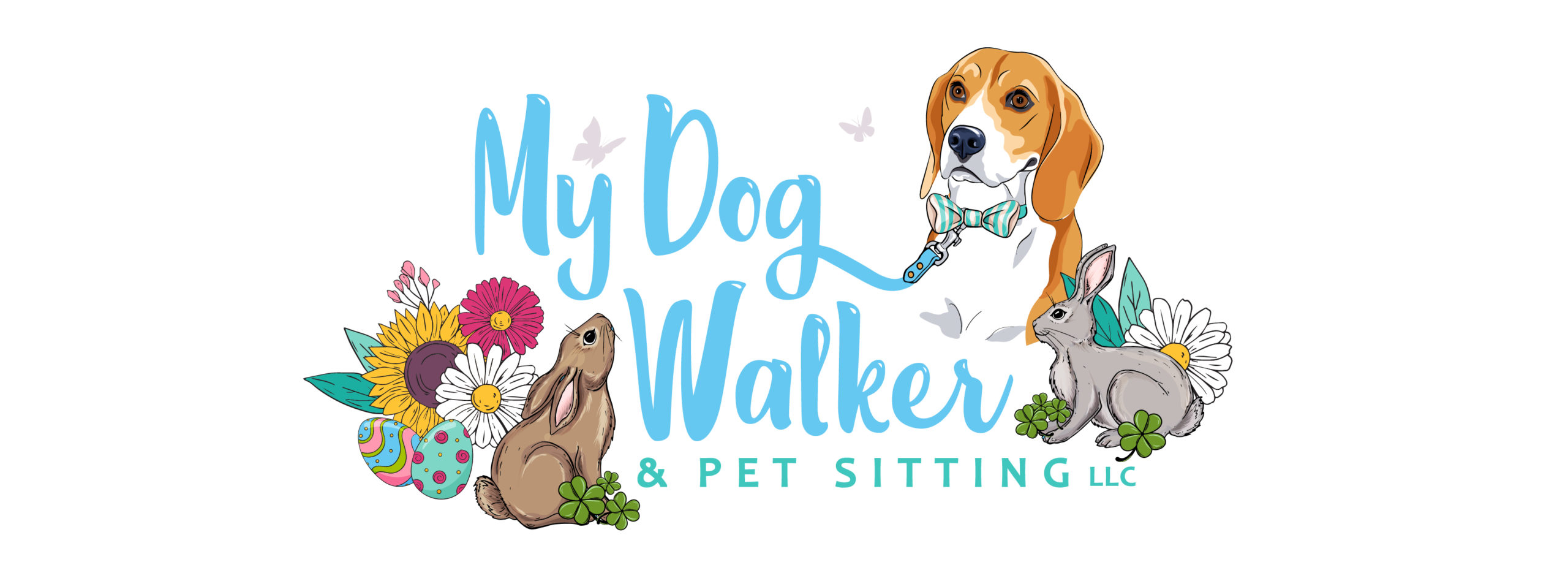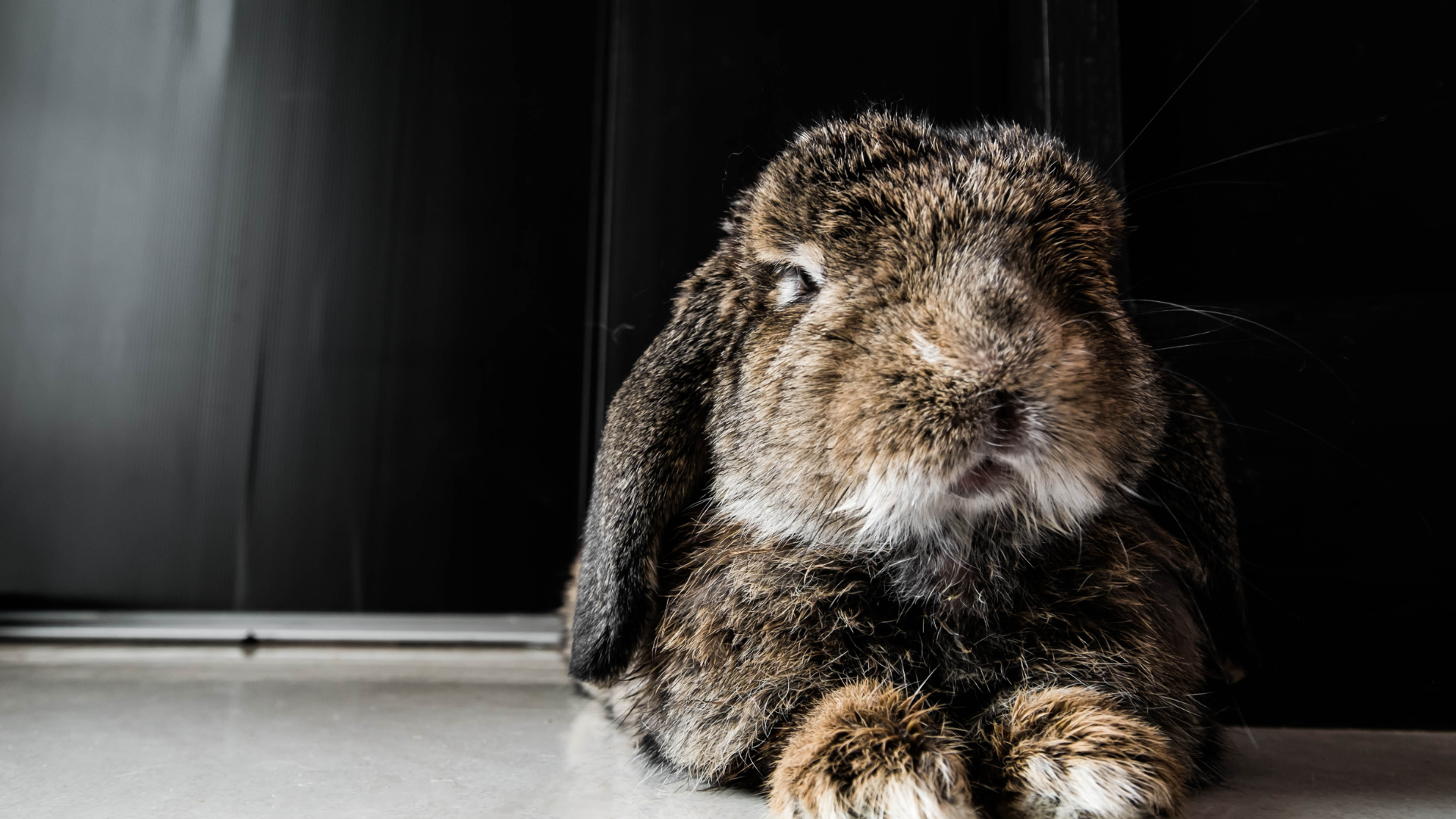
Discussing The Best Ways To Care For Senior Rabbits So They Can Live A Happy, Healthy, And Comfortable Life
As beloved pets, rabbits bring joy and companionship to many households. However, like all pets, they age. As rabbits transition into their senior years, their needs change. Caring for senior rabbits requires a bit more attention and adjustments to ensure they live comfortably and healthily.
This article will serve as a basic guide to help you care for your elderly bunny and give them the best quality of life possible.
Understanding When Your Rabbit is Considered Senior
When a rabbit is considered a senior will vary upon the breed. According to the Rabbit Welfare Association, small breeds are considered senior at 8 years old, medium breeds are considered senior at 6 years old, and large breeds are considered senior at 4 years old.
Smaller breeds often live longer, sometimes reaching over 10 years. Larger breeds may have a shorter lifespan, around 4 to 7 years. Recognizing the signs of aging, such as reduced activity, changes in eating habits, and graying fur, is crucial for adjusting their care accordingly.
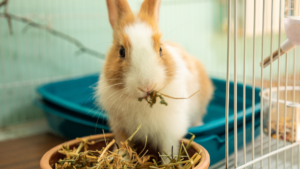
Adjusting Their Diet
Senior rabbits have different nutritional needs compared to their younger counterparts. Here are a few things to focus on regarding your senior bunny’s diet and nutrition.
High-Quality Hay
Ensure a constant supply of fresh, high-quality hay to support their digestive health. There are several different types of hay you can feed your rabbit including Timothy Hay, Meadow Hay, Orchard Grass, Oat Hay, and Herbal Hay. The most popular and most healthy choice for your senior rabbit is Timothy Hay.
For more information about the various types of hay & grass for rabbits, click here.
Balanced Pellets
Food pellets are also an important part of a rabbit’s diet. But, there are pellets that are specifically formulated for senior rabbits. These pellets are often higher in fiber and lower in calories to prevent obesity. Consult with your veterinarian or local pet store to find the best pellets for your senior rabbit.
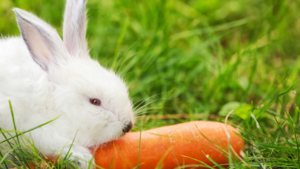
Fresh Vegetables
Besides hay and pellets, fresh vegetables are an important part of any rabbit’s diet. This includes things like romaine lettuce, mustard greens, carrot tops, beet greens, broccoli greens, and bok choy.
Therefore, continue providing a variety of fresh vegetables for your senior rabbit. But, monitor for any changes in digestion or preferences as they age.
Hydration
Keeping your senior rabbit well hydrated is very important as they age. Therefore, always provide freshwater and monitor their intake, as dehydration can be a major concern in senior rabbits.
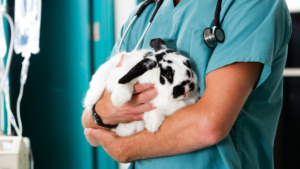
Regular Veterinary Care
Regular check-ups become even more critical as your rabbit ages. A rabbit’s chance of developing diseases and/or cancer greatly increases as they enter their senior years. Therefore, be sure to schedule vet visits at least twice a year and keep an eye out for common health issues.
For more information about common illnesses and diseases in rabbits, click here.
Dental Problems
Dental problems in rabbits can make eating very difficult and painful for them. Malocclusion (imperfect positioning of the teeth when the jaws are closed) occurs routinely in many rabbits, causing improper tooth wear and overgrowth of the incisors, premolars or molars.
Older rabbits can develop dental issues such as Malocclusion. Therefore, regular vet checkups and proper diet are essential. For more information about rabbit dental health, click here.
Arthritis
Another common health problem in senior rabbits is arthritis. Signs of arthritis include stiffness and/or difficulty in moving. If you notice these signs of arthritis, discuss pain management options with your veterinarian.
Weight Management
Weight management can be a struggle with senior rabbits. Both obesity and weight loss can indicate health problems. Therefore, regular weigh-ins and monitoring weight are important.
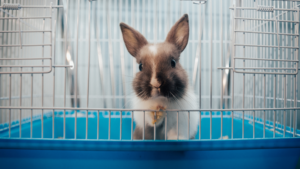
Comfortable Living Environment
Creating a comfortable and accessible living space for your senior rabbit can significantly enhance their quality of life. Here are a few general ways you can make your senior rabbit’s living environment more comfortable and enjoyable.
Soft Bedding
There are many different types of bedding you can use for your rabbit. Common forms of rabbit bedding include hay, straw, wood, fabric, and paper-based. Each type of material comes with its own advantages and disadvantages. Ultimately, you should use soft, supportive bedding to cushion your senior rabbit’s joints.
Easy Access
As rabbits get older, they may have difficulty getting around as easily as they used to. Therefore, ensure food, water, and litter boxes are easily accessible to prevent strain and overexertion.
Safe Space
The best thing you can do for your senior pet is to provide them with a relaxing, comfortable environment. Therefore, try to provide a quiet, safe space away from loud noises and excessive activity for your senior rabbit.
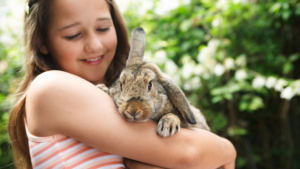
Exercise and Mental Stimulation
While senior rabbits may be less active, they still need exercise and mental stimulation. Here are a few ways to ensure your senior rabbit gets the exercise and mental stimulation they need.
Gentle Play
Encourage gentle play and interaction to keep them engaged. Only pick them up when necessary and if they feel comfortable with being picked up.
Safe Exploration
Allow safe, supervised exploration time outside their enclosure. This gives them the opportunity to stretch their legs and explore a different environment.
Toys and Puzzles
Introduce age-appropriate toys and puzzles to stimulate their mind.
Grooming and Hygiene
Maintaining proper grooming and hygiene is essential for your senior rabbit’s health. It will help them overall look better and feel better. Here are a few ways to improve their overall grooming and hygiene.
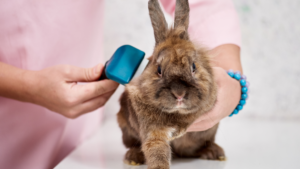
Regular Brushing
Rabbits should be brushed at least once a week. Regular brushing helps to manage shedding and prevent matting.
Nail Trimming
Similar to brushing, routine nail clipping will help your senior rabbit look and feel better. Most rabbits should have their nails trimmed every 1 to 2 months. Therefore, routinely keep their nails trimmed to prevent discomfort and mobility issues.
Cleanliness
Having a clean living environment is good for your rabbit’s physical and mental health. Therefore, ensure their living area is clean and dry to prevent infections and other health issues.
Monitoring and Adapting
As your rabbit continues to age, their needs may change. Therefore, continuously monitor their health, behavior, and preferences, and be ready to adapt their care routine accordingly. Close observation and timely adjustments can help you catch any issues early and address them effectively.
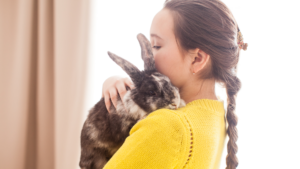
Quality Of Life Matters
Caring for a senior rabbit requires patience, compassion, and a bit of extra effort. But, the reward is a happy and healthy companion in their golden years. By paying attention to their changing needs and providing the right care, you can ensure your elderly rabbit enjoys a comfortable and fulfilling life. Remember, your veterinarian is a valuable resource, so don’t hesitate to seek their advice for any concerns about your senior rabbit’s health and well-being.
Looking For A Pet Sitter Or Dog Walker?
If you or someone you know is looking for a pet sitter or dog walker, then look no further than My Dog Walker & Pet Sitting. We are fully insured & bonded and have over 10 years of experience working with animals. Click here to check out our wide variety of pet sitting services including in-home pet sitting and routine dog walking.
We currently service the Medford, Medford Lakes, Shamong, and Tabernacle, NJ areas. To become a client, click here or give us a call at 856-217-2781. Be sure to check us out on Facebook and Instagram too! We post new content regularly, so be sure to follow us so you don’t miss out on adorable pictures of our pets.
